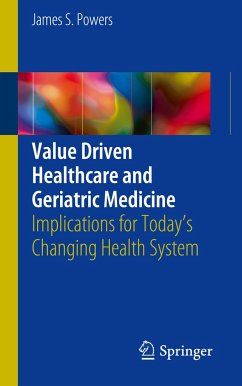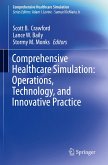Value driven healthcare is the lasting legacy of the Affordable Care Act, which had three goals: to improve access to healthcare by increasing healthcare insurance coverage, to improve the patient's experience and quality of care, and to slow the rate of increase in healthcare costs. Regardless of changes to the financing of healthcare or changes in policy, value-based purchasing for healthcare is to remain a constant feature of the healthcare horizon.
Value-based purchasing is a demand side strategy to reward quality in health care delivery. Value-based purchasing involves cost considerations and includes the actions of employers, the public sector, health plans, and individual consumers in making healthcare decisions. Effective health care services and high performing health care providers are incentivized to provide quality outcomes and to control cost. Value-based purchasing drives quality metrics which are publicly reported and serve asimportant levers for changesin healthcare delivery.
Geriatric patients consume a disproportionate share of healthcare resources, so CMS directs Medicare and drives geriatric healthcare models. All other insurers generally model CMS/Medicare guidelines. Innovative geriatric care models which demonstrate improved outcomes and cost moderation are scaled and lessons learned used to create new healthcare models. The best data for broader value driven healthcare comes from the geriatric models, which currently have the best data available.
This book traces the origins of value-based purchasing and current geriatric care models and synthesizes their implications for today's changing health system. It also discusses healthcare accountability and risk sharing. The audience includes geriatric healthcare professionals, but also a wider audience interested in broader healthcare models and value driven healthcare from a policy, economic, and ethical perspective. These include primary care physicians, specialists who work with aging patients, hospital administrators, healthcare educators, healthcare organizations, and all medical professionals working with aging patients and patients affected by healthcare reform.
Value-based purchasing is a demand side strategy to reward quality in health care delivery. Value-based purchasing involves cost considerations and includes the actions of employers, the public sector, health plans, and individual consumers in making healthcare decisions. Effective health care services and high performing health care providers are incentivized to provide quality outcomes and to control cost. Value-based purchasing drives quality metrics which are publicly reported and serve asimportant levers for changesin healthcare delivery.
Geriatric patients consume a disproportionate share of healthcare resources, so CMS directs Medicare and drives geriatric healthcare models. All other insurers generally model CMS/Medicare guidelines. Innovative geriatric care models which demonstrate improved outcomes and cost moderation are scaled and lessons learned used to create new healthcare models. The best data for broader value driven healthcare comes from the geriatric models, which currently have the best data available.
This book traces the origins of value-based purchasing and current geriatric care models and synthesizes their implications for today's changing health system. It also discusses healthcare accountability and risk sharing. The audience includes geriatric healthcare professionals, but also a wider audience interested in broader healthcare models and value driven healthcare from a policy, economic, and ethical perspective. These include primary care physicians, specialists who work with aging patients, hospital administrators, healthcare educators, healthcare organizations, and all medical professionals working with aging patients and patients affected by healthcare reform.
"This book covers an extremely important topic, focusing on geriatric medicine and healthcare system administration, with some of the most up-to-date discussions. ... The book is straightforward, clear, and the tables and figures help to illustrate the discussions. The chapters provide unique information and precise data that complements the findings and discussions throughout the book. ... This book is quite informative and is an excellent resource for health administrators and healthcare professionals." (Marina Celly M R Souza, Doody's Book Reviews, September, 2018)








